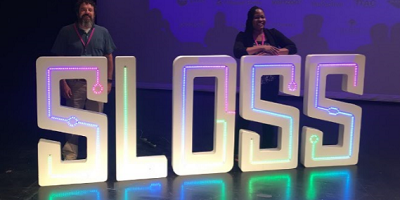Disciplined. Patriotic. Loyal. This is how members of the U.S. public, including veterans, see those who have served in the military, according to a Pew Research Center study.
These traits represent just a few of the strengths veterans bring to the workplace. The U.S. Department of Veterans Affairs says veterans also embody teamwork, accountability, self-confidence, organization, work ethic, problem-solving and adaptability — all qualities that make them valuable assets to an organization.
In addition to integrity and attention to detail, veterans can provide global perspective from their experience working with international teams of diverse individuals, according to an SHRM Foundation and National Association of Veteran-Serving Organizations (NAVSO) report. The report also identified improved leadership, better performance and creating a diverse organizational culture as positive long-term effects of hiring veterans.
Matthew Hamilton, U.S. Army veteran and Protective’s Head of HR Strategy and People Analytics, says it is important to note, however, that there is no “one-size-fits-all” way to describe a veteran.
“The military is actually a very diverse organization in terms of background and experiences,” he says. “But in general, the vast majority of veterans bring some similar characteristics to the workforce: a strong sense of morals, ethics and character; a sense of urgency and ability to simply get things done effectively and efficiently; an ability to deal with uncertainty, ambiguity and high-stress situations; and a team-oriented focus where they put the needs of the organization and others above their own.”
Matthew was commissioned as an Army officer in June 2001 out of West Point, and served as an Apache helicopter pilot in the 101st Airborne Division. He deployed to Iraq twice, first in 2003 and again in 2005.
Today, Matthew oversees the team responsible for HR technology and analytics to support better people operations and decisions at Protective.
Matthew says that while veterans possess a vast array of skills that are applicable to the workforce, other skills may not be directly applicable. This doesn’t mean those skills don’t add to what a veteran can contribute to an organization.
“For example, I’ll probably never fly a helicopter again professionally,” he says. “But one important thing for employers to recognize is that veterans tend to be able to reliably learn new skills. Military training inherently teaches servicemembers how to learn. If an 18-year-old recruit can learn to operate a nuclear submarine reactor, I guarantee they can learn to operate just about any other piece of machinery.”
Applying military experience to everyday work
Matthew’s experience as an aviation officer taught him how to get things done through others. He could fly a helicopter, but he had to trust his crew chiefs to handle maintenance while ensuring they had the resources needed and helping to prioritize maintenance activities to minimize the unit’s downtime of inoperable aircraft.
He uses this experience daily in his role at Protective.
“My team at Protective is a collection of professionals who deal with a lot of various, non-repetitive work and projects,” he says. “There’s simply no way I could possibly do a fraction of what they all do myself, both from a capacity and a skill standpoint. So my role instead is to keep them aligned and focused on the top priority items, give them the support they need and then turn them loose to get the work done without standing in their way.”
Network Operations Center Support Manager John Roxbury also uses skills he gained over nearly three decades of military service on a daily basis for everything from coaching individual team members and team building to leading change and developing strategy on matrixed teams.
“The military, whether you are in for four years or 30 years, teaches teamwork from day one. It teaches service members to work with people of all backgrounds and cultures, and to work for the team more than the individual,” he says.
John spent 27.5 years in the military — 1.5 years with the United States Marine Corps Reserve and 26 years on active duty with the United States Air Force. He joined the military at 17 and did everything from hauling fuel lines to managing all administrative functions for a 375-person aircraft maintenance organization, leading IT operations for 8,000 users and 20,000 students, and managing a protocol program for a U.S. Ambassador.
At Protective, he leads a team of 14 employees on four separate shifts supporting IT operations 24/7/365. He believes one of the greatest strengths veterans bring to the workplace is an inherently inclusive mindset.
“As military members, from our first day in the service, we work with people from all walks of life to accomplish a shared mission,” he says. “The longer you are in the military, the more exposure you get to other cultures and people, which, for me, really demands you to have an open mind and expand your acceptance of diversity.”
HRIS Administrator Judson Stidham also applies military experience to his work at Protective. He enlisted in the Alabama Army National Guard during the economic recession of 2008.
“I had desired to join the military since 2001, and the unexpected obstacles in my career at the time prompted me to consider again,” he says. “My wife and I were newlyweds and made the decision that it was time for me to serve my country as I always felt led to do.”
He spent four years working full-time (AGR) for the 1-167 Infantry Battalion as the Information Security Manager, and deployed with the battalion in 2012 as the Senior Intelligence Analyst to Kabul, Afghanistan. He was responsible for gathering intel and using it to present action plans to the commanders who would execute those plans with their soldiers. He was also able to volunteer to serve on missions in the battlefield throughout his deployment. He returned to Alabama in 2013 from Afghanistan and continued serving in the Alabama Army National Guard until February 2020.
Judson’s role as a systems administrator for the HRIS team includes ensuring HR systems operate as designed to support all the centers of excellence within HR and use the systems to gather information to tell a story with the data to help answer questions.
“For me, my many years of briefing leaders ranging from Sergeant First Class all the way up to Major and Lieutenant Generals in preparation for battle trained me to execute well. If my analyses were incorrect, it could have led to many lives lost. These unique experiences have prepared me well to keep calm, keep my head down and produce accurate information in a time crunch, or involving confidential and sensitive information in a timely and accurate manner here at Protective.”
Transitioning to civilian careers
A Pew Research Center study found that 58% of veterans found their military training to be useful when transitioning to a civilian career.
When Matthew left active duty, he used that opportunity to go back to graduate school which he says was a good transition into the civilian workforce. But many veterans take a different path and may face challenges when looking for their next role. Even those who retire from the military are often younger than traditional retirement age and will need to find a new job.
One challenge veterans face is that the pace of career growth and levels of responsibility given at a junior age and tenure in the military vast outpaces the civilian sector.
“Some people get used to that,” he says. “So, veterans need to get comfortable with something that may seem like a step backwards career-wise.”
Someone who commanded hundreds of soldiers and controlled hundreds of millions of dollars of budget may find a job where they are responsible for a small team of people. Many will join an organization as an individual contributor or manager.
He sees other military veterans struggle with figuring out where they are going to fit and what they want to do.
He has the following advice for veterans as they consider a civilian career:
“Start researching career opportunities early and doing some real introspection to really understand yourself and what you want to do. A lot of veterans don’t have a narrow enough focus, and that makes it hard when networking and interviewing for jobs. Learn how to translate military experience and skills into terminology and stories that civilians can understand.”
Judson suggests that veterans make a list of people who work for companies they regard highly and invite them to coffee to discuss what types of careers they may excel in based on their military experience.
“It is extremely difficult for veterans to ask for help from others. We all signed up voluntarily and did what we felt led to do, not for recognition. I think, for those reasons, telling other people about our experience is tough since most of us don’t want to sound like we’re bragging or asking for a thank you,” he says.
“For me, it was a blessing to have a friend at Protective, who knew I was looking for work here in Birmingham. He took the time to discuss with me what he knew Protective was looking for and how I could possibly fulfill those roles. After about a 30-minute conversation it became clear to him that my experience in analytics, paired with my education in economics and finance, would be a good fit for the role I’m currently in now.”
Understanding veterans at work
The Pew Research Center study also found that 60% of veterans say their peers at work look up to them because of their military background. But that doesn’t mean their peers fully understand their experience.
John offers the following advice for those looking to improve their understanding of veterans in the workplace:
“Veterans bring diverse backgrounds and experiences to the civilian workforce. A lot of what we do in the military correlates to the civilian world, but the cultures are very different. In learning to appreciate the differences, assume good intent, get clarification and open up channels of communication. For most veterans, they will bring a strong professionalism to any organization, and strive to adapt to their new environment.”
Judson agrees that getting to know veteran teammates is key to building relationships.
“Get to know them. Find out what they like to do to unwind. For example, I love fishing. I could talk about fishing for hours,” he says. “Understand that, especially if they’re a combat veteran, they may not want to talk about their personal experience when they first meet you. Over time they’ll probably offer little anecdotes or give some insights here and there, but that usually comes after a relationship has evolved and trust is gained."
He adds that if a veteran doesn't want to talk about their experience, don’t assume they’re struggling with depression or anxiety.
"They are looking forward to this new season of their life where the military is something about them, not the defining thing about them like it may have been prior to entering the civilian workplace," he says. "Sometimes the most welcoming thing you can do is treat them like everyone else.”
Judson offers three things to keep in mind when working with veterans:
- They are wired to know that tasks are better accomplished together and the success of the team is more important than the success of the individual.
- They know that leaving tasks unfinished or not doing them to the best of their ability is not an option.
- Last, but most importantly, veterans understand the importance of service in leadership.
“You must be willing to serve to be an effective leader,” he says. “I hope I’m able to show that in my work here at Protective.”
Learn more about working with veterans
Want to learn more about understanding veterans and the experiences that shape them? Matthew recommends watching, “How to talk to veterans about war,” a TED Talk by U.S. Army veteran Wes Moore.
He also suggests spending time learning the basics about the different branches of service and being mindful of ways to practice sensitivity toward veterans at work and in your community.
If you are interested in more ways to improve the way you work with others, consider these eight tips for becoming a better listener.





 To exercise your privacy choices,
To exercise your privacy choices,